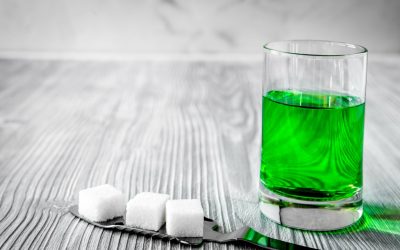More than half of the athletes showed up as dehydrated when she measured their urine — but when she looked at their blood, none of them showed up as dehydrated. You can become dehydrated if you don’t drink enough, you lose too much fluid, or both. I’ve spent the last seven years researching and understanding alcoholism, addiction, and how people get sober. Additionally, I examine the way mental and physical health as well as our relationships with others impact the reasons people drink and their role in maintaining sobriety long-term. It impairs your kidneys’ ability to filter blood and makes them work harder. Alcohol also causes hormonal imbalances that negatively affect kidney function.
What are the best electrolytes for hangovers?
According to the CDC, heavy drinking equates to more than three drinks per day or eight drinks per week for females and more than four drinks per day or 15 drinks per week for males. According to the CDC, drinking alcohol in moderation is safe for most people. A moderate amount equates to one glass of alcohol or less per day for females and two glasses of alcohol or less per day for males.
Are There Any Remedies for a Hangover?

But you don’t have to do that by drinking sports drinks like Gatorade. While they can be one effective way to replace the body’s salt, you can get that salt from other foods and drinks. And like thirst, you can trust your body to tell you how much you need. If you or your child experience symptoms of severe dehydration, seek immediate medical attention.
- Drinks that may result in dehydration can include alcoholic, caffeinated, and sugary beverages.
- But prolific pee production isn’t the only way alcohol dehydrates you.
- Additionally, I examine the way mental and physical health as well as our relationships with others impact the reasons people drink and their role in maintaining sobriety long-term.
- Overall, the dehydrating effects of alcohol can vary widely depending on a range of factors.
- These might lead to dehydration more quickly, according to a 2010 study [8] [9].
- Dehydration can lead to feelings of fatigue and weakness, which can impair physical and mental performance, impacting everyday activities such as work and exercise.
- This test is for informational purposes only and is not a substitution for a diagnosis by a trained medical professional.
Free Healthbeat Signup
This happens at a rate of about one beer, a small glass of wine, or one shot of liquor per hour. So what can you do to make sure you don’t get that infamous hangover headache caused by dehydration? Sober House Let’s find out and get a little background on why alcohol dehydrates you in the first place. Keep reading to learn about the worst drinks for hydration and the best (non-water) options to enjoy.
Hydrating Before, During, and After Drinking
You can get that amount from 12 ounces of beer with 5% alcohol, 8 ounces of malt liquor with 7% alcohol, one shot (or 1.5 ounces) of hard liquor with 40% alcohol, or 5 ounces of wine with 12% alcohol. Drinks with a higher alcohol content — and therefore more potential to dry you out — include vodka, gin, rum, and whisky. Beer and wines, meanwhile, tend to have lower alcohol content, though fortified wines like sherry and Madeira pack a kick at above 14.5% alcohol. Electrolytes are found in common foods, including salt, bananas, and watermelon, and can also be consumed from electrolyte-specific drinks or mixes.
The key to avoiding dehydration is to pay attention to how your body responds to alcohol. Acetate and other waste products are then removed from the body as carbon dioxide and water, primarily through lungs. Although the kidneys remove waste products, most of the water loss is due to the effect of vasopressin. Your body’s metabolism can turn some components of alcohol into nutrients and energy.

Chronic heavy drinking can result in high blood pressure, which is a leading cause of kidney disease. It can also weaken immunity, increasing a person’s risk of infections. Additionally, making changes to the diet to replace https://thebostondigest.com/top-5-advantages-of-staying-in-a-sober-living-house/ dehydrating drinks may help. Over time, these changes can become habits and help correct dehydration issues. Wine also tends to have a higher sugar content, which may further contribute to the dehydrating effects.
What’s the Least Dehydrating Alcohol?
Additionally, look for decaffeinated versions of your favorite caffeinated drinks or herbal teas. Chronic dehydration caused by alcohol consumption can have a significant impact on kidney function. The kidneys are responsible https://megapolisnews.com/top-5-advantages-of-staying-in-a-sober-living-house/ for filtering waste products from the blood and removing them from the body in the form of urine. When the body is dehydrated, the kidneys are unable to function properly, leading to a buildup of waste products in the blood.
- ADH stands for antidiuretic hormone (also known as vasopressin).
- It is important to stay hydrated by drinking plenty of fluids, especially when engaging in activities that may cause the body to lose water, such as exercise or spending time in the sun.
- Alcohol dehydration is a condition where the body loses significant amounts of water and essential electrolytes as a result of alcohol consumption.
Why Are You Dehydrated? 8 Common Reasons
For reference, a standard drink—12 ounces of beer, 5 ounces of wine, 1.5 ounces of liquor—has 14 grams of alcohol, according to the National Institute on Alcohol Abuse and Alcoholism [3]. If you’ve ever heard the term, “breaking the seal,” you Sober House know that alcohol has a diuretic effect on the body, meaning it causes you to urinate more frequently. The process is called diuresis, which on its own causes dehydration [1]. Consuming alcohol carries other health risks besides dehydration.
Does alcohol raise blood pressure?
Use these social-bookmarking links to share Why does drinking alcohol cause dehydration?. Your body has detectors that can sense both the saltiness of your water, and the volume of the water. If these detectors reckon that you are dehydrated, they send a signal to the posterior pituitary gland, which starts pumping out ADH. The job of ADH is to stop you urinating, so you hang on to your precious water.
Eat before drinking
Sometimes you may just want to order a drink simply because you feel like having one (many of us regularly do so after work or on the weekends), and this is fine when done in moderation and with a few tips in mind. Sipping a cocktail while commuting home from a work trip or while en route to a vacation doesn’t carry a ton of benefits, but you can still enjoy a drink while flying if it’s a behavior that works for you. “If you have heart failure or issues with fluid retention, talk to your doctor about optimal fluid regimens to remain hydrated in hot or warm weather,” advises Dr. Fertel. It’s important to talk to your doctor if dehydration is listed as a side effect. Certain medications may make it easier for you to become dehydrated. People who are older, young children or those who may have a decreased thirst mechanism should be encouraged to drink liquids.
- It can also cause muscle cramps due to an imbalance of electrolytes in the body, such as sodium, potassium, and magnesium, which are essential for proper muscle function.
- Some can be tricky — like high-quality wines with a higher alcohol by volume than low-quality wines.
- So, if you’re looking to hydrate quickly after alcohol consumption, tap water probably isn’t the best option.
- Different variables can increase the risk of becoming dehydrated.
- “Even the fluid intake we get from fruits and vegetables and food counts towards our total fluid intake for the day.”
- While hangover symptoms may remain, be sure to drink water to help speed your recovery.
Hydrate with Minerals and Electrolytes

